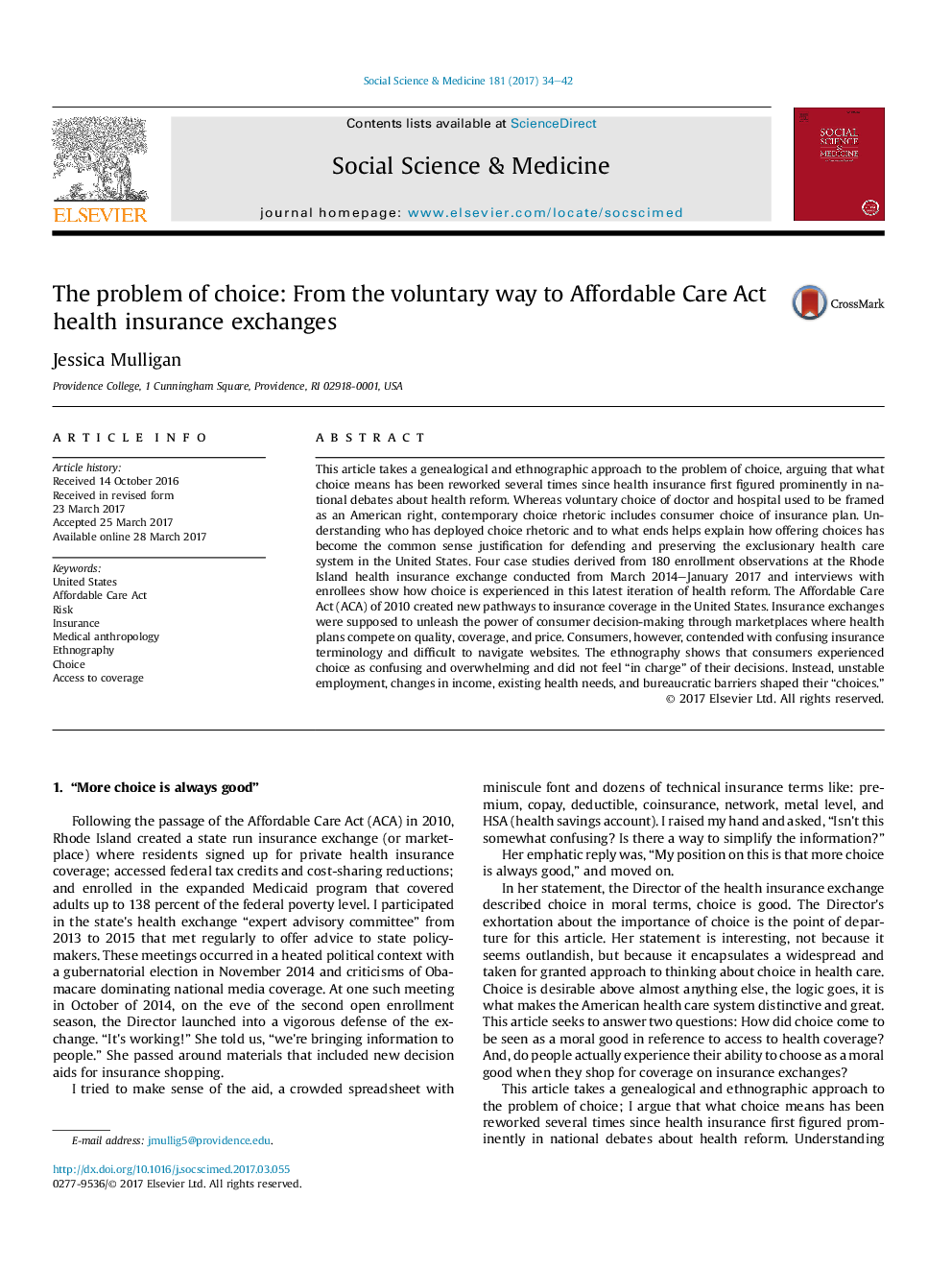ترجمه فارسی عنوان مقاله
مشکل انتخاب: از راه داوطلبانه به قانون مبادلۀ بیمه درمانی مقرون به صرفه
عنوان انگلیسی
The problem of choice: From the voluntary way to Affordable Care Act health insurance exchanges
| کد مقاله | سال انتشار | تعداد صفحات مقاله انگلیسی |
|---|---|---|
| 112301 | 2017 | 9 صفحه PDF |
منبع

Publisher : Elsevier - Science Direct (الزویر - ساینس دایرکت)
Journal : Social Science & Medicine, Volume 181, May 2017, Pages 34-42
ترجمه کلمات کلیدی
ایالات متحده، قانون مراقبت مقرون به صرفه، خطر، بیمه، انسان شناسی پزشکی، اتنوگرافی، انتخاب دسترسی به پوشش،
کلمات کلیدی انگلیسی
United States; Affordable Care Act; Risk; Insurance; Medical anthropology; Ethnography; Choice; Access to coverage;

